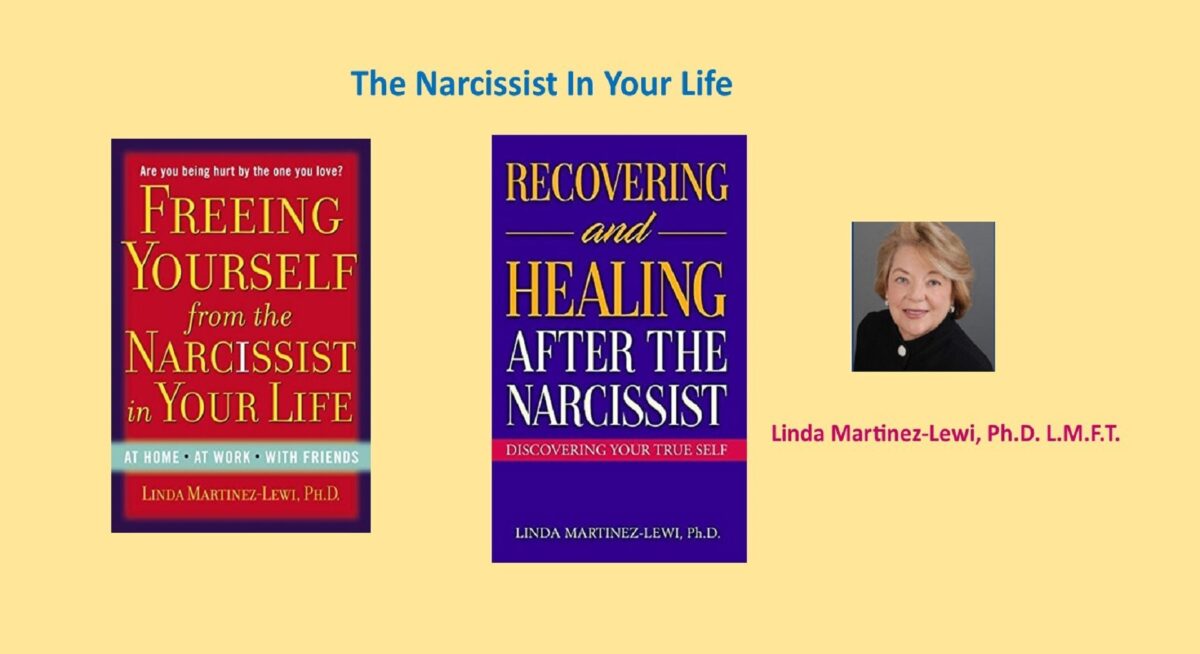Being married to a narcissist is a painful emotional experience with someone who always puts his/her needs above everyone else. Some spouses know that it was a mistake from the beginning. They cannot pinpoint that this person with whom they share their life is a narcissistic personality. In the beginning most of us are dazzled, almost hypnotized by the narcissistic partner. He or she is often highly accomplished professionally. He has finely honed social skills, radiant self confidence and tremendous drive. There are always clues to the real personality beneath the very attractive package that most people overlook—the self absorption, obsession with the perfect outer image, flashes of rage when you disagree with them, a flurry of demands, cruel remarks thrown out at random. The manipulations, betrayals, lies, subterfuges build up over the months and years. There is a wish on the part of the partner to make the marriage work, especially if children are involved. The non-narcissist keeps looking at herself/himself for fault or deficiency.
Finally, the great divide along the marital road appears. Out of nowhere the narcissistic spouse announces that the marriage is over, the divorce papers have already been filed and he has made specific plans for new living arrangements. The abandoned partner is hit with a massive body blow. The emotional shock is breathtaking. A cycle of disbelief, numbness and confusion begins and mercilessly repeats itself throughout the hours, days and weeks after the divorce. Some people feel that they don’t know who they are anymore. They fear that they have lost their identities. Others believe that this is all an illusion and the narcissist will return and all will be well. Ultimately, reality hits its mark. He is not coming back; he is gone.
Each person awakens from the aftermath of divorcing a narcissist in his or her individual way. One of the most important steps is to be compassionate and patient with yourself—-no recriminations or judgments about what you could have done to save the marriage. You were involved with a person who is incapable of having any intimate relationships. This is your loss and your grief, not theirs. Allow yourself to cry and to grieve this great loss and to be angry, even enraged. Find expression for these powerful feelings through skilled professional therapy, support groups, and close friends who are capable of empathy. In some cases, family can offer valuable support.
Become aware of your basic needs for rest, sleep, and healthy food that will sustain you. Use positive escapes (movies, books on tape, music you love, experiencing Nature. Do not rush. Slow down–pay attention to your breath: inhaling and exhaling in the moment.. If you are physically healthy or have clearance from your doctor, find a mode of exercise that works specifically for you.
What are the essentials of your day? Write them down. If you cannot complete them at first, start with small steps. Say to yourself: I am doing my best. Making the effort counts. I will not make judgments about my performance.
Waking up after a life altering event like a divorce is a process not a product. As you move through each step, you are redefining yourself, re-creating your own unique identity. Visit my website:www.thenarcissistinyourlife.com
Linda Martinez-Lewi, Ph.D.
Telephone Consultation
Email:lmlphd@gmail.com
